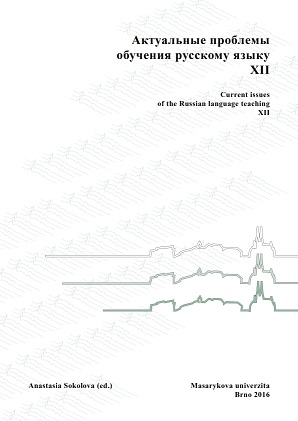Распространённые ошибки учащихся-билингвов при сдаче ЕГЭ по русскому языку, их квалификация и пути устранения (из опыта работы председателя предметной комиссии по русскому языку в Республике Татарстан)
Typical mistakes bilingual students make when taking Unified National Exam in the Russian language, their classification and methods of elimination (based on the experience of Russian language subject board chairlady in the Republic of Tatarstan)
Author(s): Tatyana Aleksandrovna Gimranova Bychkova
Subject(s): Education, Foreign languages learning, Syntax, Pragmatics, Eastern Slavic Languages, Philology
Published by: Masarykova univerzita nakladatelství
Keywords: bilingualism; problem of bilingualism; Unified National Exam; grammar mistakes; speech mistakes; Russian as non-mother tongue; language competency;
Summary/Abstract: In many regions of the Russian Federation as well as in the Republic of Tatarstan we can witness the situation when the education is conducted using one language and at home the communication is performed using another language. Bilingualism in modern Russia is a wide spread phenomena. Bilingual people are people who can communicate in two or more languages in different environments both monolingual and bilingual in accordance with their sociocultural needs. Bilinguality is closely connected with the phenomena of double nature of cultural sensitivity. Peculiarities of the second language education have always been a topic of deep interest for a lot of scientists. Therefore a special branch closely connected to psycholinguistics appeared. The following article studies the questions connected with the problems which arise when bilingual students take Unified National Exam in the Russian language. The exam checks the following competencies of students: linguistic proficiency (system of the language, main language terms), language proficiency (main language rules), communicative proficiency (speech skills). Experience has proven that bilingual students show lack of such competencies. The research gives classification of the most wide spread mistakes students make when Russian is not their mother language. The basis for the research is represented by the written works of the students whose native language is Tartar. We analyze test tasks (with the possibility to choose the answer), compositions where students were supposed to show their skill to point out one of the problems mentioned by the author in the source text, to comment on this problem, to formulate the author’s position, to express their own point of view, to give arguments on their point of view and to make conclusions. We use method of comparative analysis of unrelated languages. Special attention is paid to the peculiarities of bilingual children teaching in the Russian environment. We have pointed out several recommendations for teaching of the Russian language in bilingual classes aiming to eliminate the mistakes pointed out in the article.
Book: Aктуальные прoблeмы обучения русскому языку XII
- Page Range: 20-28
- Page Count: 9
- Publication Year: 2016
- Language: Russian
- Content File-PDF

